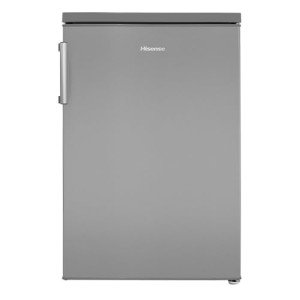Understanding Refrigerators: A Comprehensive Guide
Refrigerators, often described as fridges, are important appliances in modern homes and industrial establishments. They play an essential role in protecting food and beverages, guaranteeing they stay fresh and safe for consumption. Over the years, developments in technology have actually transformed the modest fridge into a sophisticated home appliance that comes geared up with various features and performances. In this article, we will explore the various types of refrigerators, key functions to consider when acquiring one, and maintenance ideas to extend its life-span.
Kinds of Refrigerators
When it comes to fridges, there is a multitude of options readily available in the market. Each type accommodates various needs and preferences, making it essential for consumers to understand their attributes. Below is a summary of the main kinds of refrigerators:
| Type | Description | Pros | Cons |
|---|---|---|---|
| Top-Freezer | A standard style with a freezer compartment above the refrigerator section. | Affordable, familiar style | Minimal storage area for fresh food |
| Bottom-Freezer | Functions a freezer compartment situated at the bottom for much easier access to fresh food. | Ergonomic style, more fresh food space | Freezer may require flexing to access |
| Side-by-Side | Split vertically, with the freezer on one side and the refrigerator on the other. | Practical access to products, adequate storage space | Narrow storage bins |
| French Door | Combines a bottom freezer with double doors for the refrigerator section, offering flexibility. | Trendy style, simple access to foods | Greater price point |
| Compact Fridge | Smaller sized systems developed for limited spaces such as dormitory rooms or offices. | Space-efficient, portable | Minimal storage capability |
| Smart Fridge | Equipped with Wi-Fi connection and touch screens, making it possible for users to handle groceries digitally. | Modern features, energy-efficient | Pricey and may require updates |
Key Features to Consider
When buying a refrigerator, it's important to examine particular functions to ensure it fulfills your needs. Here are crucial aspects to consider:
Size and Capacity
- Make sure the fridge fits your kitchen area space.
- Consider the total capability based on your home requires.
Energy Efficiency
- Search For ENERGY STAR rankings to make sure energy performance, which can save on electrical power expenses.
Cooling Technology
- Examine if the fridge utilizes conventional cooling, double cooling, or advanced innovations like inverter compressors for much better performance.
Storage Options
- Evaluate shelving flexibilities, crisper drawers, and adjustable compartments for efficient storage and organization.
Finish and Design
- Select a finish (stainless-steel, matte, etc) that matches your kitchen design. Remember to consider the overall style, whether sleek or traditional.
Smart Features
- Think about smart fridges if you want features like temperature control by means of an app, stock tracking, and notices when the door is exposed.
Upkeep Tips for Refrigerators
Proper maintenance can considerably extend the life of a refrigerator. Here's a list of important maintenance practices:
- Regular Cleaning: Keep the interior tidy and devoid of spills and expired items. Regular monthly cleansing is recommended.
- Check Temperature Settings: Ensure the refrigerator is set in between 35 ° F and 38 ° F, while the freezer needs to be at 0 ° F to preserve food safety.
- Clean Condenser Coils: Dust and debris can build up on the coils, decreasing efficiency. Cleaning them every 6 months is recommended.
- Inspect Door Seals: Regularly check the door gaskets for wear and tear. A good seal is crucial for maintaining temperature level.
- Thawing: In older designs, defrost the freezer regularly to prevent ice buildup. Some contemporary fridges included auto-defrost functions.
- Keep Vents Unobstructed: Ensure airflow is not obstructed by items, which can hamper cooling effectiveness.
- Screen Food Storage: Properly store foods and avoid straining the fridge, which can limit air flow.
Frequently Asked Questions (FAQs)
How long do refrigerators usually last?
- The majority of refrigerators last between 10 to 15 years, depending upon the design and upkeep.
What can I do to keep my fridge running efficiently?
- Routine cleansing, checking temperature settings, and preserving proper ventilation can boost performance.
Is a clever fridge worth the financial investment?
- If you often prepare, amuse, or require advanced features such as remote temperature level control and inventory tracking, the investment may be rewarding.
Can my refrigerator cause high electrical energy costs?
- Inefficient designs, poor upkeep, or leaving the door open can lead to increased electrical power intake.
What's the difference between a top-freezer and a bottom-freezer model?
- A top-freezer fridge has a freezer area above the fridge, while a bottom-freezer model has a freezer drawer at the bottom for ease of access to fresh food.
Refrigerators are important in contemporary cooking areas, serving not only as storage for perishables however also showing improvements in technology and benefit. With click through the up coming web page , comprehending the types, features, and upkeep can empower consumers to make educated decisions. Appropriate care can make sure that a fridge remains efficient and functional for many years, eventually enhancing the total food storage experience in the home. Whether picking a trendy French door design or a compact fridge for a studio apartment, consumers today are equipped with the understanding to select the right appliance for their requirements.

